In 2016, photographer Joy Sharon Yi began taking the Metro to Barry Farm, a large public housing complex in Southeast Washington, D.C., built in 1943 on the first city settlement where African-Americans could buy property and build homes after the Civil War.
Yi was drawn to Barry Farm's history and the looming shadow of change. She spent time getting to know residents at the famed Goodman League basketball games and eventually began documenting the community. At that time, "Barry Farm residents ... feared being displaced, but the community was not yet on its last legs," Yi says. "Residents [and] former residents really, genuinely loved their community. I wanted to document that joy before the buildings came down."
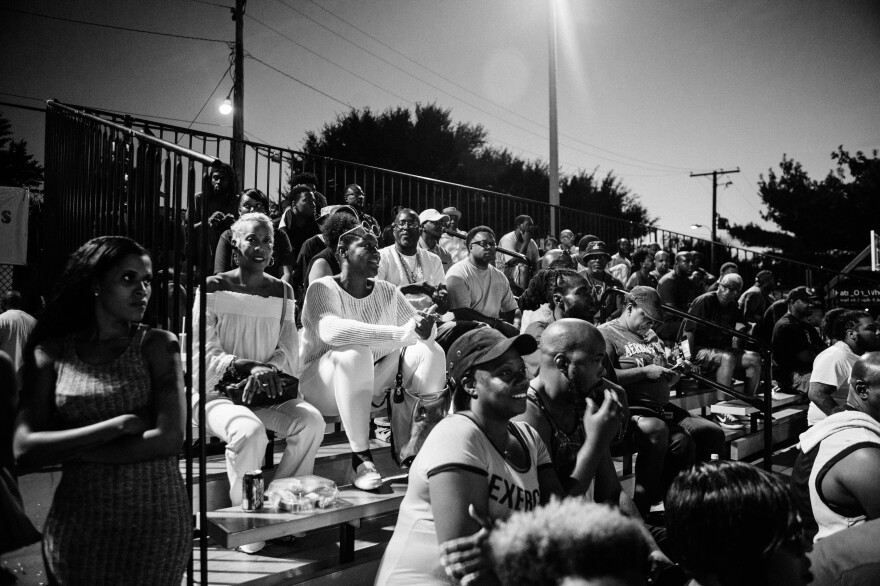
In 2005, the District government launched the New Communities Initiative — a plan to redevelop the 444 units at Barry Farm into a mixed-use, mixed-income community, which officials say would have space for former Barry Farm residents. Over a decade later the program has yet to be realized at Barry Farm, facing delays, setbacks and criticism.
Yi used black-and-white images to connect Barry Farm residents to the city's history. "The more I researched Barry Farms, urban renewal and the historical use of black-and-white imagery in America, particularly in low-income communities," she says, "at a certain point, I started to recognize history repeating itself — enduring trauma and the repeated, forced displacement of black communities."
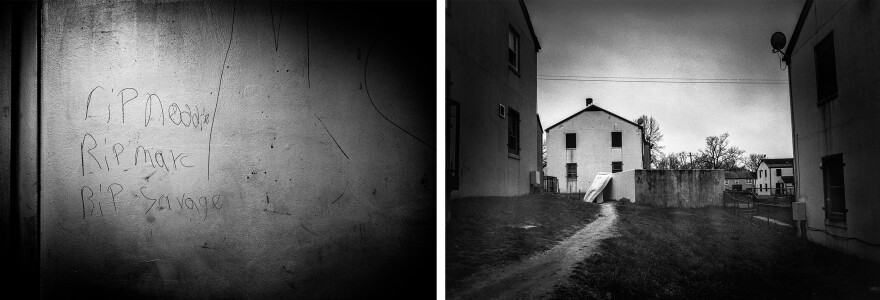
Her relaxed, documentary-style photos captured quiet details and casual moments. "I personally think that not enough is being told about what is happening in terms of the affordable housing crisis," she says. Yi hopes her photographs "add something to the conversation in terms of people being able to see who lives here."
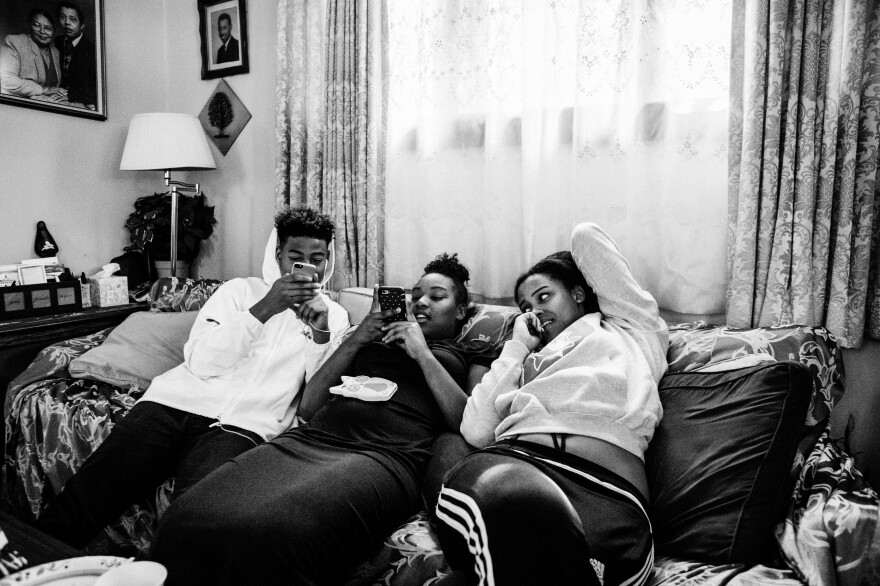
The majority of residents have since relocated — some to different public housing, others with the help of vouchers. "One of the residents told me, he said, 'It's a ghost town basically now,' " says Yi. "When I first came in 2016 there were a lot of kids ... people of all ages hanging out." That's less true now: "The Housing Authority has boarded up the houses, a lot of them," she says.
Though she photographed the community widely, Yi was especially drawn to the story of one resident, an ambitious teenager, Dasani Watkins, who was then a student at E.L. Haynes Public Charter School in Northwest D.C.
Watkins and her family moved out of Barry Farm to Brightwood Park in Northwest D.C. this past May with the help of a housing voucher from the District government. Here, we share excerpts from conversations between Watkins, Yi and NPR's Becky Harlan about what Watkins learned growing up in the projects, how it felt to leave and what it means to have your community disperse.
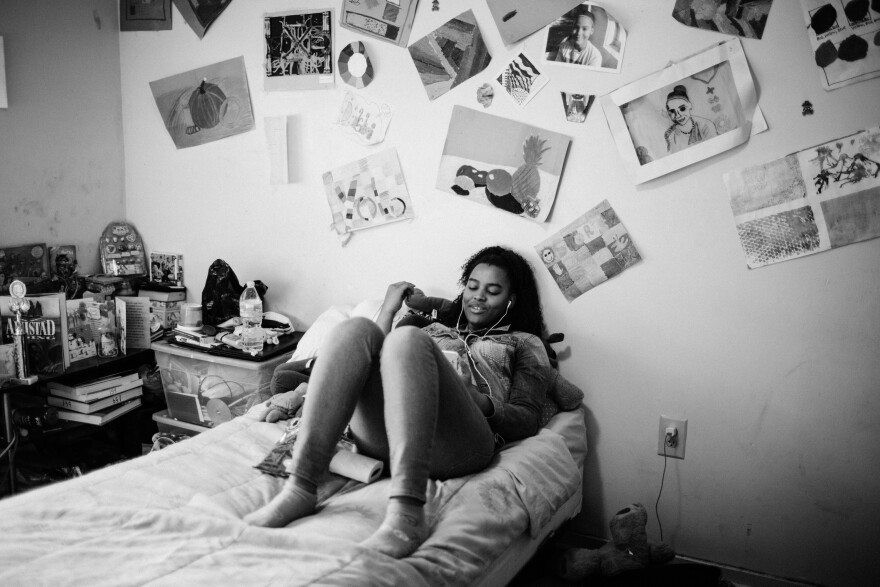
Note: This interview has been edited for length and clarity. Colloquially, Barry Farm is referred to as both Barry Farm and Barry Farms.
Joy Yi: Tell me about some of the circumstances that brought you to Barry Farm.
Dasani Watkins: I was coming from Florida, and living with my cousins at the time, but we weren't able to live with them anymore. We were living in our van — we were homeless. We used to sell Gatorade on the street at Gallery Place [in Washington, D.C.]. I was only 11. That's when my childhood ended.
Eventually we moved in with my aunt, and eventually she got us into public housing, and that's how we got into Barry Farms.

Yi: What was it like to grow up there? What was difficult? What were your favorite parts?
Watkins: Growing up in Barry Farms is not as bad as many may think it is. It's hard to grow up in the 'hood, but I don't want to put a bad image on Barry Farms or the people who are there. It's a good community. People tend to talk to each other more than in my new neighborhood [in Northwest D.C.]. The hardest part was the commute to my high school 30 minutes away. The summers were very hard because it was very hot, and there was no air conditioning. You would be sitting in the heat, 97 degrees, no air conditioning. Fourth of July is really fun over there — fireworks, there's a pool. It's a typical neighborhood; people do normal things. It's not just all violence.
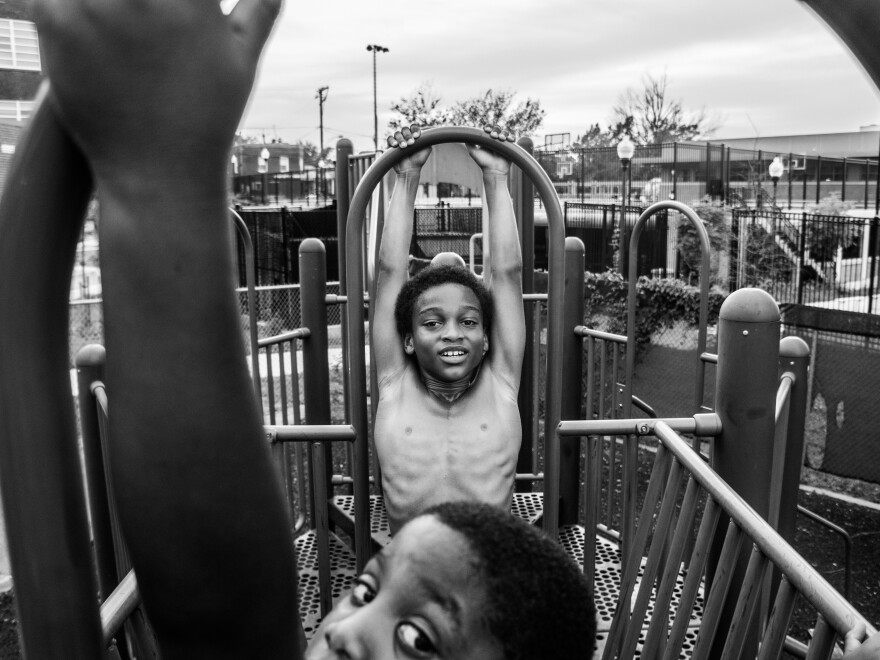
Yi: How did it feel getting ready to leave Barry Farms?
Watkins: It was a bittersweet feeling. Mostly because the community that I had there was really close. So it was pretty sad to leave, but I didn't want to live in public housing the rest of my life. And I guess getting away from the violence was good. [The new house] was also closer to my school. I can always go back to visit, but I fear one day I will go back, and it's not the same. Of course things are going to change, but like, is the change going to be good or bad? I guess it's the fear of the unknown.

Yi: Tell me a little bit about your school life. Tell me what you've accomplished and how important it was for you to have a place to go home to.
Watkins: I graduated high school this year and I was salutatorian of my class. I got into eight of the 11 schools I [applied] to. I'm going to Pitzer College in California. Woot woot! Full ride! The thing that got me through high school was my drive to do better, and ... be something better so I could take that back to my community and spread that knowledge to everybody else so we all can grow and grow together. I think I wouldn't be the person I am today if I didn't go through the struggles that I went through because I would have nothing to fight for. I'm always going to be a fighter.
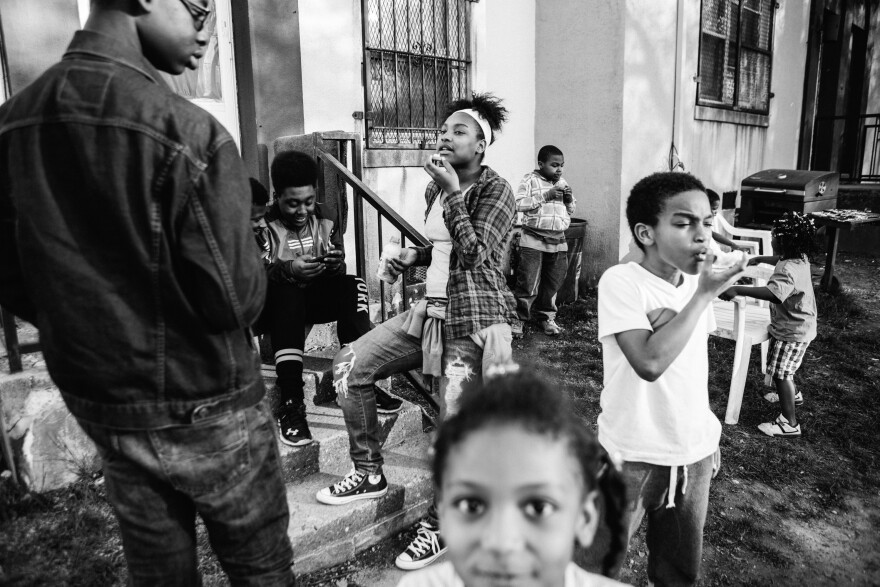
Yi: What other lessons did Barry Farm teach you?
Watkins: It taught me to not judge a book by its cover. You can look at somebody and assume that person is vile, dirty, that they don't do nothing for themselves. But if you really look deeper, there's so many things that play a part into that person's oppression and depression. Talk to someone before you assume, and ask somebody if they want your help before you try to give it to them. I think that's what people are doing — they're trying to fix something, but they don't even know if it needs to be fixed.

Yi: Why do you think Barry Farms is important?
Watkins: It's important because there are people there. It's a community. Children have grown up there, generations have grown up there, but do you really want to continue that type of oppression and depression inside of Barry Farms for generations? Yes, bring the change to the neighborhood, but bring it for those people. Don't push those people out and bring it for someone else.
Becky Harlan: When you moved, did you feel like you were saying goodbye?
Watkins: It wasn't like a "see you later." It was like "goodbye" because you're not certain if you're ever going to see these people again. It's kind of sad — you grew up with them and now they're gone. They're going to different neighborhoods, and you don't know if you'll ever have that same community again. People don't talk to each other in [my] new neighborhood. They don't speak at all. In Barry Farms, it was, " 'Are you doing OK?' or 'Do you need help with this?' or 'Do you want to talk about it?' " Here, it's go about your business — you don't talk to me, I won't talk to you.
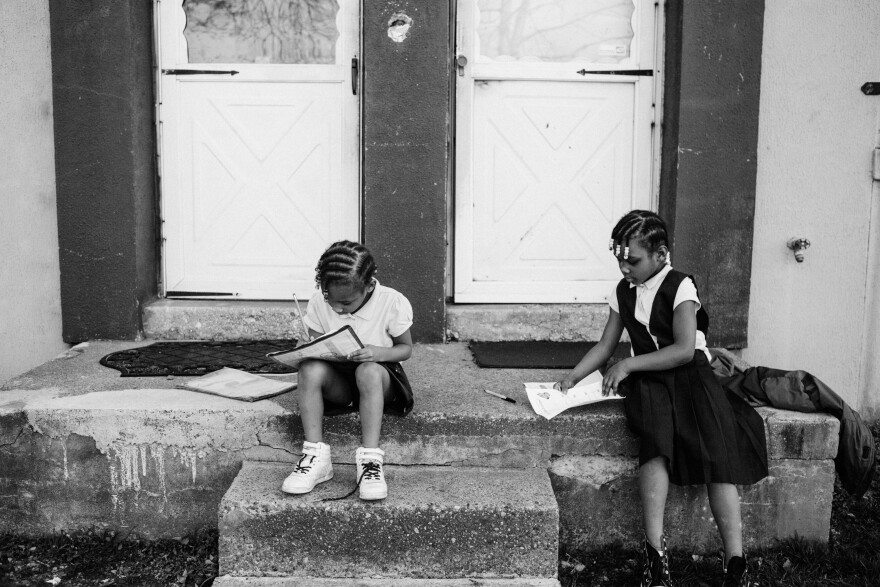
Harlan: Is there anything else you want to say about Barry Farms?
Watkins: I would say Barry Farms is misunderstood, and I feel like you can't just read about Barry Farm and what's going on to truly understand the impact of what's going to happen to the community. I think you actually have to go and visit like Joy did — visit the people, talk to them and see what they want. ...


Joy Sharon Yi is a documentary photographer and video editor based in Washington, D.C.
Dasani Watkins began her freshman year at Pitzer College in September.
This project received support from the Alexia Foundation.
Copyright 2023 NPR. To see more, visit https://www.npr.org.


